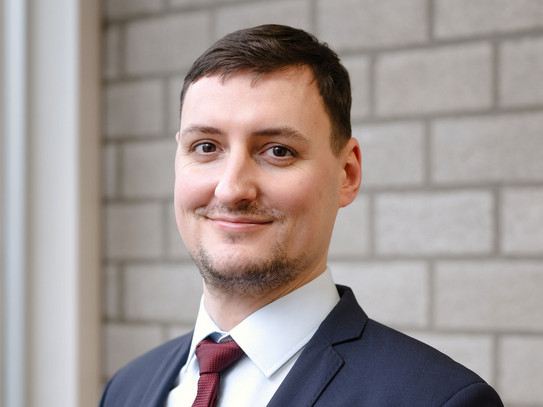New Approaches to Antibiotic Development
- Top News
- Research

A precise understanding of the structure of bacterial cell membranes is crucial for the development of new antibiotics and to combat bacterial infections. The cell wall is the first point of contact between antibiotics and bacteria. If an antibiotic does not have a suitable chemical structure, it will be repelled by bacterial cell walls and the treatment of infections fails. This consequence is being observed globally with increasing tendency: According to the Robert Koch Institute, approximately 1.27 million people die each year from the consequences of an infection with bacteria that are resistant to antibiotics.
To secure the development of effective antibiotics, new and unique targets in bacterial cell membranes must be explored. Because once a bacterial cell wall loses its structure and function, the bacterium also dies. To achieve this goal, the team led by Dr Urner, who coordinated the cross-country research between TU Dortmund University and the University of Oxford, investigated components of bacterial cell membranes. In doing so, the team observed a new interaction between proteins that regulate osmosis, vitamin, or active substance transport, and the so-called “lipopolysaccharide (LPS)”. According to current knowledge, the binding of LPS to proteins enables the construction of bacterial cell membranes. These insights have been crucial for the further development of reserve antibiotics, such as colistin. “The newly discovered protein-LPS interaction provides new starting points for antibiotics that turn off vital processes in bacteria,” says Dr Urner.

Key technologies for this discovery were scalable hybrid detergents and concepts for the streamlined investigation of protein-lipid interactions. Both technologies were previously developed by Dr Urner’s research group at TU Dortmund University and published in interdisciplinary, peer-reviewed journals. A large part of the research was financed by the NRW return program of the Ministry of Culture and Science of the State of North Rhine-Westphalia, through which Dr Urner came from the University of Oxford to TU Dortmund University in 2022. In addition to Dr Leonhard H. Urner and Prof Dame Carol Robinson, cooperation partners from the Sapienza University in Rome and the University of Warwick are also involved in the publication.
Publication on scalable hybrid detergents
Publication on the exploration of protein-lipid interactions
Contact person for inquiries:





![[Translate to English:] Partner Four hands are holding the green logo of TU Dortmund University](/storages/tu_website/_processed_/1/d/csm_Partner_Nicole_Rechmann_KW_670eba0154.jpg)




![[Translate to English:] Forschung An apparatus with tubes in a laboratory](/storages/tu_website/_processed_/0/c/csm_Forschung_Juergen_Huhn_4fa3153b51.jpg)
![[Translate to English:] Studium Five students are sitting in a lecture hall. They are talking to each other.](/storages/tu_website/_processed_/c/9/csm_Studium_FelixSchmale_dbdbfb0dd7.jpg)






